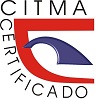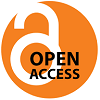Complementary activities for the development of mathematical skills
Complementary activities for the development of mathematical skills
Keywords:
Complementary Activities, Skill Devellopment, MathematicsAbstract
Mathematics in Primary School allows us to promote the comprehensive development of students and their full preparation for life. It is considered the basis of complex knowledge processes, where critical, reflective and analytical thinking is necessary. This develops the ability to reason, formulate and solve problems, and becomes important from the first steps of the intellectual training of people in the processes of abstraction for the development of mathematical thinking. Its treatment, attention and the influences exerted on students allow them to develop correct cognitive independence. Cuban education is immersed in the third improvement that is aimed at the comprehensive training of students. For them, ways and forms of the study plan are perfected, allowing differentiated attention to the interests of the students to meet the objectives of each level. This article was prepared in order to contribute to greater cognitive and motivational stimulation for students in the sixth grade of Primary Education, with the aim of proposing a complementary program to develop mathematical skills. Theoretical level methods were used for bibliographic studies of the theoretical and methodological references of the topic under study, an empirical level method to verify the initial and final state of the selected sample and mathematical statistical methods with which the information was processed and Conclusions were reached that contribute to a practical contribution that allows the solution of problems.
Downloads
References
Cuellar, A. (1977). Nociones de Psicología General. Editorial Pueblo y Educación. La Habana; Cuba
González, M. (2001). Psicología para educadores. Editorial y Educación ISBN 978-959-13-0330-1. La Habana; Cuba
Ministerio de Educación (MINED) (2016). Plan de estudio de la Educación Primaria. Recuperado de https://www.mined.gob.cu/primaria/plan-de-estudio/
Támara López , D. E. ., Guevara Blanquicett, . E. J., Méndez Ramos, M. C., Menco Tovar, A. C., & Vertel Morinson, . M. L.. (2022). Actividades Complementarias - Extraescolares y el aprendizaje en Estudiantes de Básica Primaria: un Estudio con Análisis en Correspondencias Múltiples: Impact of Supplementary and Extracurricular Activities to Students Learning of Primary Basic: a Study with Multiple Correspondence Analysis. STUDIES IN ENGINEERING AND EXACT SCIENCES, 3(1), 137–155. https://doi.org/10.54018/seesv3n1-013
Cuesta MiñosoL., Jústiz GuerraM., & Argilagos MoreiraZ. (2019). La identidad cultural en los escolares de la Enseñanza Primaria. Una alternativa desde las actividades complementarias y extraescolares. Opuntia Brava, 11(Especial 2), 134-151. Recuperado a partir de https://opuntiabrava.ult.edu.cu/index.php/opuntiabrava/article/view/907
Quintero Bacca, A. (2022). Actividades lúdicas para fortalecer el pensamiento lógico-matemático en los estudiantes de grado quinto. AiBi Revista De Investigación, Administración E Ingeniería, 10(1), 1–12. https://doi.org/10.15649/2346030X.2497
López Gonzalo, M. (2022). El juego como herramienta educativa en las clases de matemáticas [Master thesis]. https://digibuo.uniovi.es/dspace/handle/10651/63864
Umanzor-Ramírez, G., & Ulloa-Guerra, O. (2020). Implementación de las TIC para fortalecer las competencias básicas en el área de matemáticas. Santiago, 152, Article 152.
Flores Linares , R. E., & Herrera Jiménez , D. . (2023). Programas complementarios en la nueva concepción de currículo institucional: Complementary Programs in the new conception of the institutional curriculum. Horizonte Pedagógico, 11(4), 32–40. Recuperado a partir de http://horizontepedagogico.ch.gob.cu/index.php/hop/article/view/294
Vigotsky, L (1987). Historia de las funciones psíquicas superiores. Editorial Ciencia y técnica. Recuperado de https://saberespsi.files.wordpress.com/2016/09/lev_vygotski_-_historia_del_desarrollo_de_las_funciones_psiquicas_superiores.pdf
Fernández Arias, L. A. . (2020). Estrategia metodológica para la enseñanza de la geometría plana en estudiantes con ceguera: Methodological strategy for the teaching of plane geometry in students with blindness. Horizonte Pedagógico, 9(3), 81–87. Recuperado a partir de //horizontepedagogico.ch.gob.cu/index.php/hop/article/view/166
Velázquez Cobiella, E.E. (2019) Conferencia Inaugural en el Congreso Internacional Pedagogía 2019. La Habana. Cuba
Published
How to Cite
Issue
Section
License
Copyright (c) 2024 Yasmani Guzmán Drullet , Yohanka Delgado Polledo, Yanet Llorca Cuesta

This work is licensed under a Creative Commons Attribution-NonCommercial 4.0 International License.
Horizonte Pedagógico is an Open Access journal, meaning that all its content is freely accessible at no charge to the reader or their institution. Users are authorized to read, download, copy, distribute, print, search, or link to the full texts of articles in this journal without prior permission from the publisher or author, in accordance with the BOAI definition of open access. Authors who publish in this journal agree to the following terms: Authors retain copyright and grant the journal the right of first publication. The journal is protected under a Creative Commons Attribution 4.0 International License (CC BY-NC 4.0), which permits others to share (copy and redistribute the material in any medium or format) and adapt (remix, transform, and build upon the material) for any purpose, even commercially. Under the following conditions: attribution (you must give appropriate credit, provide a link to the license, and indicate if changes were made) and non-commercial — You may not use the material for commercial purposes. You may do so in any reasonable manner, but not in any way that suggests that the journal or the publishing author endorses you or your use.






















